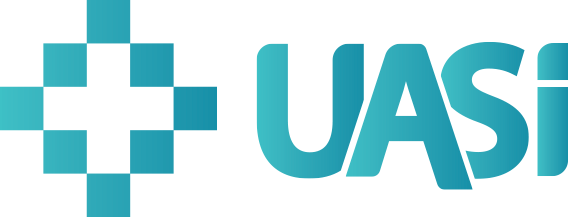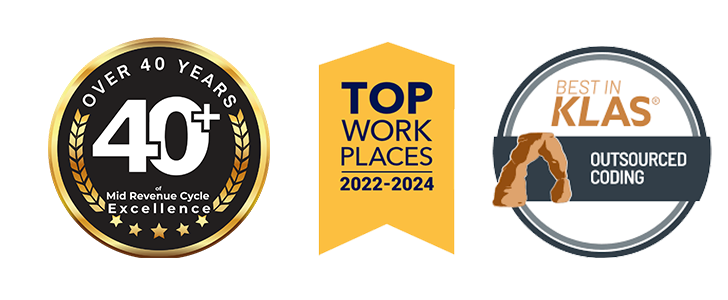Discover how our SMART approach can streamline your strategies and improve outcomes in risk-adjusted healthcare management.
Ready to elevate your Risk Adjusted Population program?
Schedule a free consultation today! We can help you find a solution to your problem.
Risk Adjustment:
An Integrated System for Value-Based Care
Shifting into a value-based reimbursement environment is a transformational endeavor. VBC turns the traditional model on it’s head by focusing on the patient, not the encounter. Taking the approach to keep patients healthy versus treating them when they are ill causes providers to approach their care in much different ways. Achieving the right outcomes with risk adjustment requires healthcare organizations to trade silos for an integrated approach.
Change is never easy or a straightforward path. It’s difficult for many organizations to get started when they think about all of the factors that have to be considered. Others have gotten started in their transformation but have not experienced the outcomes they are seeking. Risk-adjustment needs to be addressed head on. Success is rare if trying to “fit” care for risk adjusted patients into using current mindsets, people, processes and tools. While this can be overwhelming at first, it’s important to think big picture, but act purposefully. In our experience, we have found using a system framework helps make the process manageable and helps providers see how to be successful.
Our system framework is comprised of 5 key components (or elements) that need to be in place to think and plan the transformational effort. The relationship between each component requires consistent monitoring and evaluation for continuous improvement to ensure a viable, beneficial system.
Strategize,
Measure,
Align,
Resource, and
Transform
for a Future-Ready Healthcare System
Strategy
Unified Healthcare Approach with UASI
Develop a cohesive strategy with UASI that aligns all healthcare activities with your broader organizational goals. By breaking down silos and coordinating clinical and financial operations, we ensure that every effort is directed towards collective outcomes. With UASI, gain access to bespoke strategic planning and expert insights that leverage decades of healthcare management experience to exceed the evolving needs of patient care.
Measurement
Data-Driven Decision Making with UASI Expertise
Leverage UASI's expertise in data management to measure and analyze performance effectively. Our rigorous approach to data collection, analysis, and interpretation informs every decision, ensuring strategies are both effective and adaptable. With UASI, you benefit from customized analytics solutions and ongoing support to ensure your organization can achieve and surpass industry benchmarks.
Alignment
Harmonizing Operations and Goals with UASI
Ensure that every component of your organization—from your clinical teams to your IT infrastructure—is synchronized with your strategic goals through UASI’s support. This alignment is crucial for fostering a supportive and cohesive environment that promotes health over healthcare transactions. With UASI, benefit from integrated health systems design and change management expertise, ensuring seamless operations across your entire organization.
Resources
Optimizing Tools and Technology with UASI
Selecting and implementing the right tools and technology are paramount in executing strategic initiatives. With UASI, gain access to industry-leading resources that improve efficiency and meet the complex data demands of modern healthcare systems. Our solutions and expert implementation support pave the way for operational excellence and set you apart in the healthcare industry.
Transformation
Continuous Improvement and Adaptation with UASI
Embrace transformation as an ongoing journey with UASI by your side. We emphasize the importance of continuous monitoring, evaluation, and adaptation to ensure your organization not only meets current healthcare standards but also sets new benchmarks. With UASI, you gain a dedicated partner in healthcare innovation, providing tools and strategies for sustainable growth and performance improvement.
As reimbursement models shift to value-based care, accurate medical coding will have a powerful impact on your revenue cycle performance.
Capturing accurate RAF scores for your patients is key to improving quality of care and proper reimbursement.
Ready to elevate your Risk Adjusted Population program?
Schedule a free consultation today!
We can help you find a solution to your problem.
Achieving Outcomes in a Complex Structure
Shifting into a value-based reimbursement environment is a transformational endeavor.

S
Strategy
Develops a unified approach to align all healthcare activities with broader organizational goals. This includes eliminating silos and ensuring all clinical and financial operations are coordinated towards collective outcomes.
M
Measurement
Focuses on the rigorous collection, analysis, and interpretation of data to inform decision-making and refine strategies. By measuring performance against predefined benchmarks, organizations can ensure that their strategies are effective and adaptive.
A
Alignment
Ensures that all aspects of the organization—from clinical teams to IT infrastructure—are aligned with the strategic goals. This is crucial for creating a cohesive environment that supports value-based care.
R
Resources
Involves selecting and implementing technological and operational tools that support the execution of the strategy and facilitate day-to-day activities. These resources are crucial for improving efficiency and supporting the data needs of the organization.
T
Transformation
Emphasizes the importance of continuous monitoring, evaluation, and adaptation. This continuous improvement cycle is vital to achieving and sustaining high-performance in a changing healthcare landscape.
UASI can help you answer questions like:

What key priorities, training, and key performance indicators (KPIs) should be established in a holistic VBC program?

What people, processes, and tools are needed to accommodate risk-based approaches?

How can we target efforts on high-risk patients and population management
strategies?

How can we optimize RAF scores compared to benchmarks?









